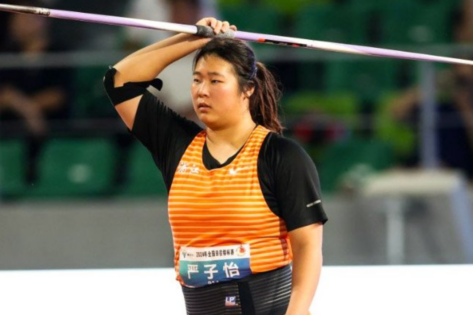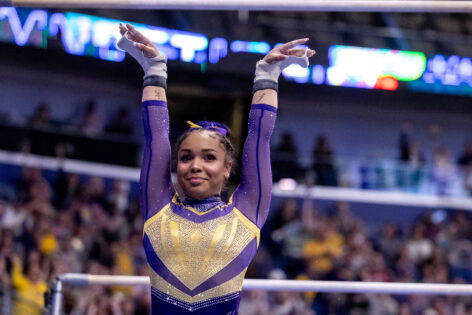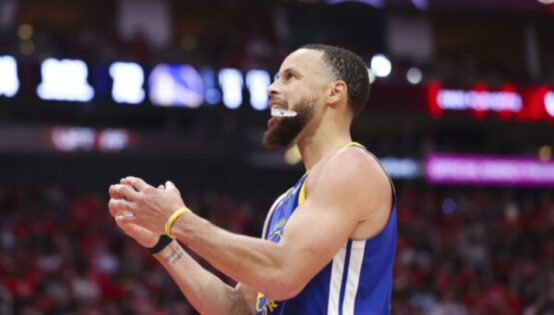It should’ve been a moment of triumph, a 16-year-old launching a record-breaking 64.83m throw, stamping their name in history. But instead of booking a well-earned ticket to the World Championships, Yan Zihi found themselves at the center of controversy. A rule, which seemingly applies only to throwers, has shut the door on the Chinese prodigy despite their undeniable talent. Fans aren’t just questioning the decision; they’re furious, calling it an unfair technicality that robs young athletes of their shot at the world’s biggest stage.
But if the system won’t recognize greatness, Yan Zihi will make it impossible to ignore. Less than 24 hours later, the teenage sensation fired back in the best way possible, obliterating their own world junior record yet again. It wasn’t just about the distance; it was a statement. A message to the world that talent and determination don’t wait for permission. With each throw, Yan is proving they don’t just belong at the World Championships. They deserve to be feared.
Even World Athletics couldn’t hold back their amazement, posting on X, “16-year-old Ziyi Yan breaks her own world U20 javelin record for the third time with a throw of 64.83m at the Throws Invitation Meeting 1 in Chengdu .” And they’re right! Yan Ziyi is on a record-breaking spree. The Chinese sensation first made history as a 15-year-old last April with a 64.28m throw, surpassing both the ratified world U20 record of 63.86m and an unratified 63.96m mark. Then, she pushed it further with a 64.41m bomb in September. Now, she’s added another 42cm, cementing herself as the most dominant teenage javelin thrower in history.
There’s not stopping her
16-year-old Ziyi Yan, breaks her own world U20 javelin record for the third time with a throw of 64.83m* at the Throws Invitation Meeting 1 in Chengdu
Report https://t.co/tDkUZukZtS
*Subject to the usual ratification procedures pic.twitter.com/ceZR6QY7MO
— World Athletics (@WorldAthletics) March 29, 2025
Yet, despite rewriting the record books, the one thing she can’t seem to break through? An age restriction that keeps her out of the World Championships. Age limits in sports aren’t unusual, but this particular rule has left fans baffled. If Yan were a sprinter or jumper, her performances would qualify her for a global stage. No questions asked! But for throwers, it’s a different story. Even if they shatter records and prove their worth, a technicality blocks their path. One frustrated fan summed up the absurdity of the rule, writing, “Pretty dumb rule. She could compete if she were a sprinter or jumper but not as a thrower… Make it make sense .” That’s the issue. It doesn’t make sense. The system isn’t just holding Yan back. It’s limiting the sport itself by sidelining a generational talent.
The debate now isn’t about whether Yan deserves a spot at the World Championships. Her throws have already made that case. The real question is, why does this rule exist in the first place? Yan isn’t just competing at a high level; she’s doing it with the senior implement, proving she’s ready for the biggest stage. Yet, instead of celebrating a young athlete’s rise, the sport is stuck enforcing a rule that makes no distinction between protecting young athletes and blocking undeniable greatness.
The controversy around age restrictions in sports
Athletics employs typical age restrictions, although specific restrictions seem like artificial barriers instead of safety measures when they block potential record-breakers from competition. The present rules enable competitors who become 18 or 19 in 2025 to participate in events except the marathon and 35km race walk. The regulations become tighter for athletes who were born in either 2008 or 2009. Athletes who are 16 or 17 can participate, except in the case of throwing,g along with combined event competition and distance running. The sporting restrictions forbid underage throwers from keeping the records they break, even though they will stay ineligible forever. Athletics fans doubt why competitors who show strong talent should be restricted through no fault of their own.
This irregular model has existed beyond track and field events for a long time. Eliud Kipchoge from Kenya provides us with an example of this phenomenon. His latest prominent achievement at the NCAA DI Mountain Region Championships involved a victorious performance where he ran 28:55.9. Such outstanding victories usually generate praise from spectators. The main problem with his participation stems from his advanced age, which stands at 28 years. Athletes in the NCAA reach college at 18 but complete their athletic years by 22 or 23, while Kipchoge continues participating beyond this typical time frame. Some believe Kipchoge should be permitted to compete if he abides by the rules, but other people think his presence gives him an advantage against athletes his junior.
Governing organizations display selective control of age limitations due to these contrasting cases. Competitors face different treatment when one is investigated for competitive age limits, while another faces restrictions despite establishing their world-class potential. Rules restricting young talents need modernization because organizations should focus on recognizing potential as it develops and ensuring fair competition. When an athlete demonstrates world-class skill levels, does their age or sport event programming matter for a ruling decision?
The post Robbed of Chance at World Championships 16-Year-Old Fires Back With Another World Record Within 24hrs appeared first on EssentiallySports.



